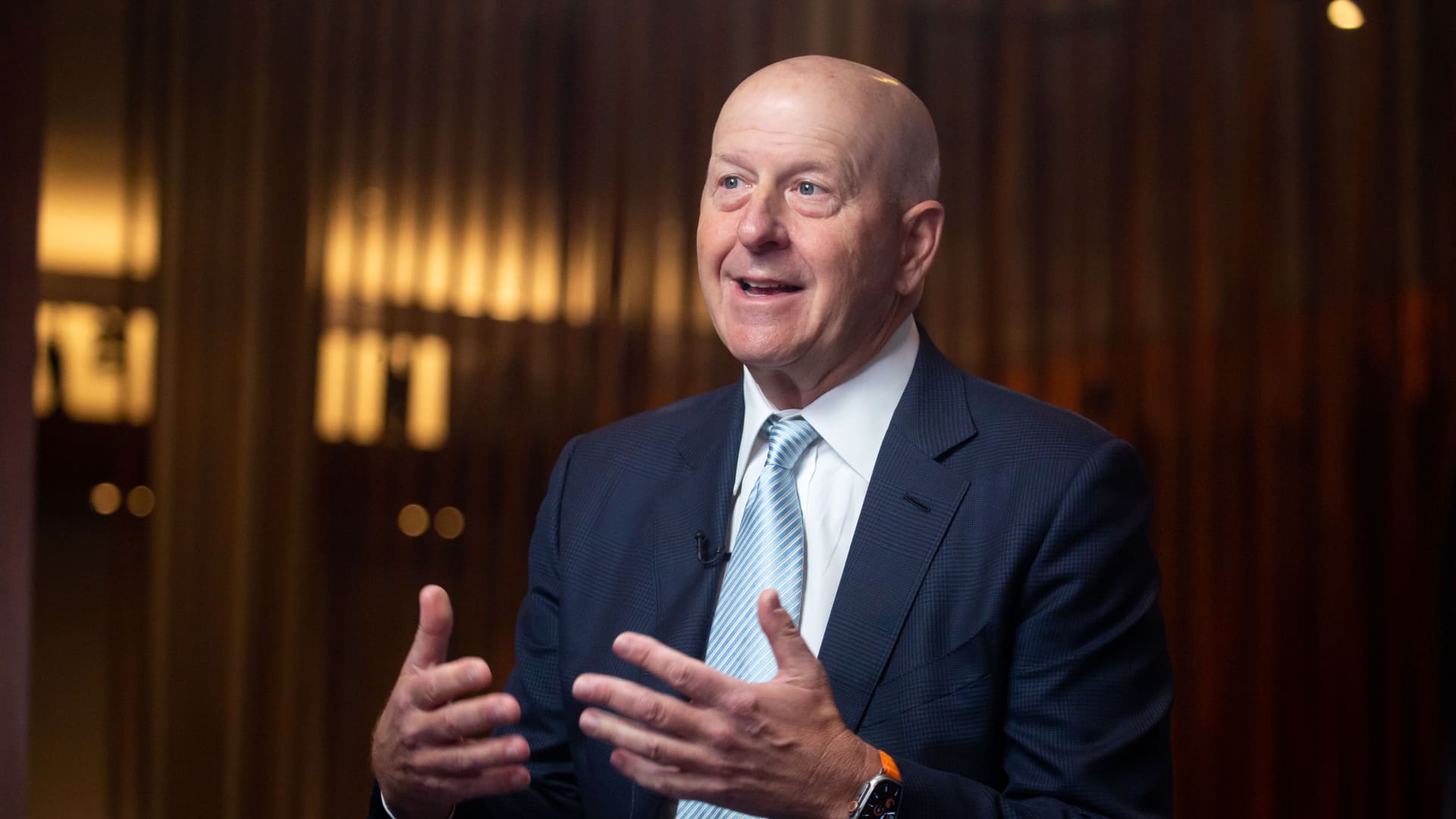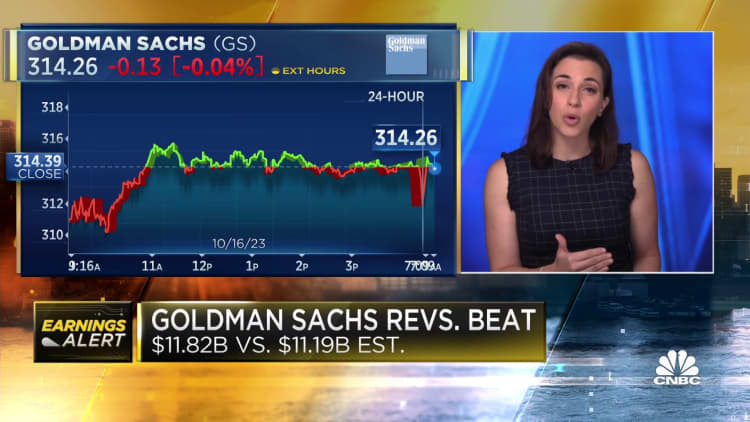
[ad_1]

Goldman Sachs posted third-quarter profit and revenue Tuesday that exceeded analysts’ estimates on stronger-than-expected trading revenue.
Shares of the bank fell more than 1%, and are down about 10% for the year.
Here’s what the company reported:
- Earnings: $5.47 a share, topping the $5.31 a share estimate from LSEG, formerly known as Refinitiv
- Revenue: $11.82 billion vs. $11.19 billion expected
The bank said profit dropped 33% to $2.058 billion, or $5.47 a share, from a year earlier. Revenue also slipped 1% to $11.82 billion, though that topped expectations by roughly $600 million.
Bond trading revenue fell 6% from a year earlier to $3.38 billion, but that was almost $600 million more than what analysts had expected. Goldman cited strength in interest rate products and mortgages, which helped offset declines in trading of currencies, commodities and credit.
The firm’s efforts to boost lending activities in the trading division also helped as fixed income financing revenue reached a record $730 million.
Equities trading revenue climbed 8% from a year earlier to $2.96 billion on higher activity in derivatives, topping the estimate by roughly $200 million.
David Solomon, chief executive officer of Goldman Sachs Group Inc., at the Goldman Sachs Financial Services Conference in New York, Dec. 6, 2022.
Michael Nagle | Bloomberg | Getty Images
Investment banking revenue edged higher by 1% to $1.55 billion, slightly exceeding the $1.48 billion estimate.
Multiple headwinds
Among its big bank peers, Goldman Sachs is the most reliant on investment banking and trading revenue.
While it’s made efforts under CEO David Solomon to diversify its revenue stream, first in an ill-fated retail banking push and later as it emphasized growth in asset and wealth management, it is Wall Street that powers the company. Last quarter, trading and advisory accounted for two-thirds of Goldman’s revenue.
That’s been a headwind this year as mergers, initial public offerings and debt issuance all have been muted as the Federal Reserve boosted interest rates to slow the economy down. With signs that activity has picked up lately, analysts will be eager to hear about Goldman’s pipeline of deals.
At the same time, Goldman has taken hits from two areas: Its strategic retrenchment away from retail banking has saddled the firm with losses as it finds buyers for unwanted operations, and its exposure to commercial real estate has resulted in write-downs as well.
The bank said Tuesday it posted a $506 million third-quarter write-down tied to lending business GreenSky, and $358 million in real estate impairments.
‘Messy quarter’
“We continue to make significant progress executing on our strategic priorities,” Solomon said in the release. “I also expect a continued recovery in both capital markets and strategic activity if conditions remain conducive. As the leader in M&A advisory and equity underwriting, a resurgence in activity will undoubtedly be a tailwind for Goldman Sachs.”
It was a “messy” quarter for Goldman, with elevated compensation costs and firmwide returns well below the mid-teens medium-term target, Wells Fargo analyst Mike Mayo said in a research note.
Analysts will be keen to hear more on Solomon’s view of the investment banking outlook, as well as how the remaining parts of its consumer effort — mainly, its Apple Card business — fit in the latest iteration of Goldman Sachs.
Jim Cramer’s Investing Club shares what investors should listen for in a company’s earnings call.
Last week, JPMorgan, Wells Fargo and Citigroup each topped expectations for third-quarter profit, helped by better-than-expected credit costs. Morgan Stanley is scheduled to post results Wednesday.
Don’t miss these CNBC PRO stories:
[ad_2]





